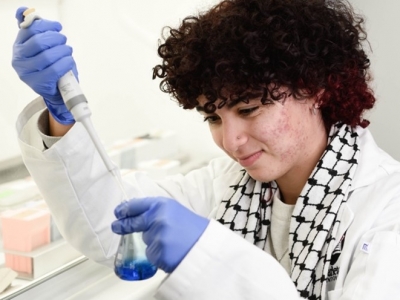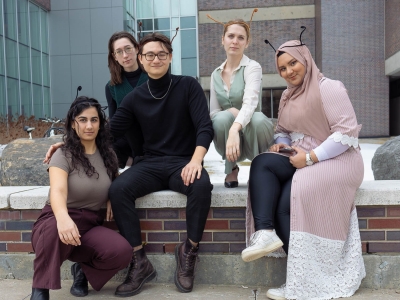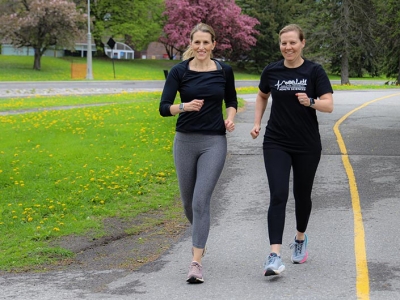Twice a month on Wednesday nights during Carleton’s fall and winter terms, the Faculty of Science hosts volunteer professors to present their innovative research to the public in an inclusive and informal setting. The Café starts at 6:30 p.m. and typically runs for one hour. The best part? Admission is completely free of charge.
Pamela Wolff, an instructor with the chemistry and environmental science departments and the chair of the Science Café, says she believes this program is more important now than ever before.
“Science literacy and, in a broader sense, the ability to question and evaluate all kinds of evidence is hugely important in this day and age,” says Wolff. “It is also important that we reach out and give people the chance to meet with cutting edge researchers and experience not just what is being done in science research, but how science research is done—the mind-set behind it.”
Passionate Science, Passionate Teaching
Dr. Hanika Rizo, an assistant professor and researcher with Carleton’s Department of Earth Sciences, was the Café’s keynote speaker on January 30. Dr. Rizo’s research at Carleton has focused on early geochemical evolution of the earth—an area of study that includes the analysis, in rocks, of isotopes that formed over four billion years ago. This work, she says, requires analytical techniques that push the limits of the precision of geochemical measurements.
“I think there are only around five of the high-precision mass spectrometers I require for my research in all of Canada, and Carleton has one of those,” Rizo reveals. “Carleton is great because it supports a lot of fundamental research. That fundamental research can then be applied to other projects and lead to incredible advancements for the community.”
Growing up in Mexico, Rizo did not know a career in earth science outside of mining was possible. While enrolled in post-secondary school in France, she found her love for earth science and is now dedicated to sharing her passion with future students, current students and the community through various initiatives, including the Science Café.
“Often times people look at earth science and think rocks can be boring, but programs like the Café can change that. There is something pleasant about sharing my research with non-experts—they get so excited, which at the same time, energizes me,” explains Rizo. “Programs like the Science Café are also a great way to teach kids and parents about possible scientific careers. Maybe a future earth scientist will be sitting in that room.”
Rizo’s talk at the Café in January explained ancient geological processes that have made the earth habitable today, as well as the formation of the planet’s metallic core and its relationship with the moon formation. Dr. Rizo also passionately shared recent discoveries in the geochemical field, such as the evidence that the earth used to be covered in vast oceans of magma.
All About Community
Other winter-term Cafés have covered an astonishingly wide range of topics such as dark matter detection, innovative treatment of chronic pain, math’s role in information security and nature’s shocking impact on human health.
A snapshot of the wide range of topics covered at the Science Café in early 2019.
The Science Café is divided into a 20-minute formal lecture followed by a 40-minute discussion period between the scientist and the audience. Typically, audiences for the event include industry professionals, students, general members of the public and science-minded kids.
As a pillar of the local community, Carleton is committed to ensuring that Ottawa residents know what is going on at the university.
“I think the Café is a fantastic way of presenting science in a great approach that is open to the community,” Rizo expresses.
Carleton’s Science Café and the scientific researchers involved in the initiative are, in every way, Here for Good. The Faculty of Science is devoted to fostering today’s innovative minds and methodologies while simultaneously establishing transparent and positive connections with the community.





